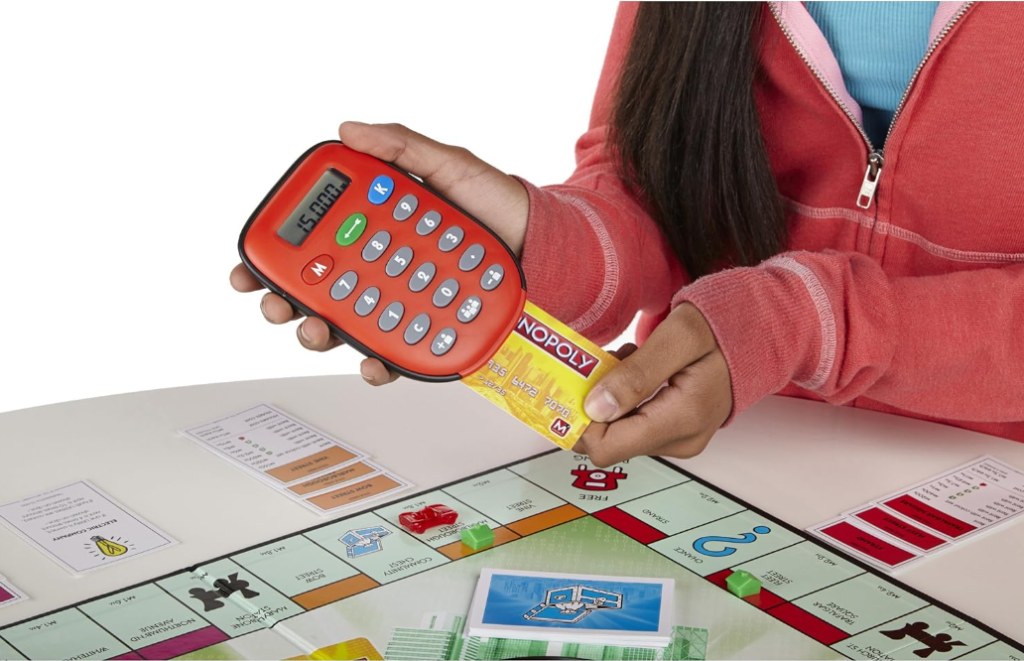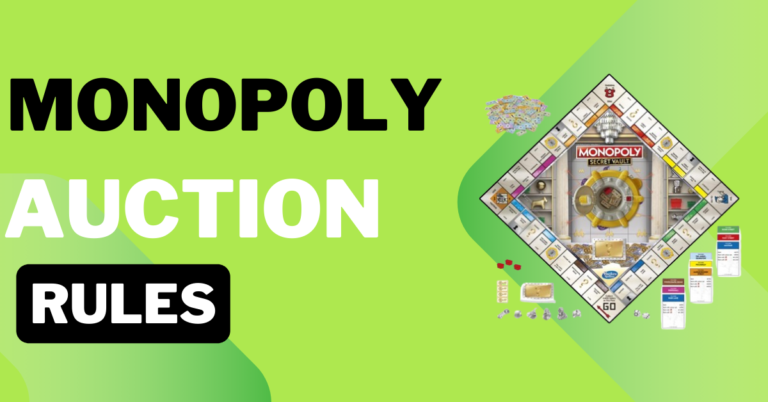Monopoly Banker – Role and Responsibilities in the Game
Monopoly Banker plays a crucial role in maintaining order and fairness. Monopoly, the classic board game, requires careful management of finances and properties to ensure smooth gameplay. This guide will explore the duties of the Monopoly Banker, tips for efficient management, and solutions to common challenges.

1. Role of the Monopoly Banker
Responsibilities
The Monopoly Banker is responsible for managing all financial transactions within the game. This includes distributing money at the start, collecting taxes and fines, and handling property sales. The Banker also ensures that players adhere to the rules regarding finances.
Skills Required
To be an effective Monopoly Banker, one must possess strong organizational skills, attention to detail, and fairness. A good understanding of the game rules is also essential to resolve any disputes or issues that may arise during gameplay.

2. Setting Up the Game
Distributing Money
At the beginning of the game, the Banker distributes $1,500 to each player, broken down as follows:
- 2 x $500 bills
- 4 x $100 bills
- 1 x $50 bill
- 1 x $20 bill
- 2 x $10 bills
- 1 x $5 bill
- 5 x $1 bills
Organizing Properties
The Banker should also organize the property cards and ensure they are easily accessible. This involves sorting them into categories such as utilities, railroads, and color groups.
3. Managing Transactions
Collecting Payments
The Banker is responsible for collecting payments for various game actions, such as landing on another player’s property, taxes, and fines. This ensures that the game’s economy remains balanced.

Handling Properties
When players purchase properties, the Banker facilitates the transaction by collecting payment and handing over the property deed. The Banker also manages mortgages and property trades between players.
4. Common Challenges and Solutions
Dealing with Cheating
Cheating can disrupt the game and cause conflicts. The Banker should keep a close eye on transactions and enforce the rules strictly. Encouraging transparency and honesty among players can also help prevent cheating.
Managing Disputes
Disputes over rules or transactions are common. The Banker should be familiar with the official rules to resolve these issues fairly and swiftly. Having a rulebook handy can be useful.
5. Tips for Efficient Banking
Keeping Track of Finances
Maintaining accurate records of all transactions is crucial. The Banker can use a ledger or digital tools to keep track of players’ money and property status.
Using Digital Tools
There are several apps and online tools available that can assist with banking duties in Monopoly. These tools can streamline transactions and reduce errors.

Additional Tips for Success
- Stay Neutral: As the Banker, it’s important to remain impartial and ensure all transactions are fair and according to the rules.
- Clarify House Rules: Before starting the game, make sure all players agree on any house rules, especially those involving finances and property management.
- Keep a Spare Bank Set: Having extra Monopoly money and property cards from another set can help if pieces go missing.
- Regular Check-Ins: Periodically check the game’s finances and properties to ensure everything is in order and no mistakes have been made.
By following these guidelines, you can ensure your role as the Monopoly Banker is executed smoothly, leading to a more enjoyable game for everyone involved.
FAQs
What should I do if I run out of money in the bank?
Players can use any paper or create their own money if the bank runs out of money. The game’s rules allow for this flexibility.
Can the banker play the game as well?
Yes, the banker can also be a player. However, they must be careful to keep their duties as bankers separate from their own gameplay actions to avoid conflicts of interest.
How do I handle property auctions?
If a player decides not to buy a property they land on, the Banker conducts an auction. The property is sold to the highest bidder, starting at any amount chosen by the Banker.
How do I manage the free parking rules?
The official rules state that no money is collected for landing on free parking. However, some house rules involve collecting fines and placing them in the center of the board, to be collected by the next player to land on Free Parking. The Banker should clarify which rules are being followed before the game starts.
How should I handle player bankruptcy?
When a player goes bankrupt, they must turn over all their assets to the player they owe. If they owe the bank, all their properties are returned to the bank, and the Banker auctions them off to other players. Ensuring this process is followed correctly is vital for maintaining game balance.
Conclusion
The Monopoly Banker is pivotal in ensuring a fair and enjoyable game. By understanding their responsibilities, staying organized, and being prepared for common challenges, the Bankers can help create a smooth and fun gaming experience for everyone. Whether you’re a seasoned Monopoly player or a newcomer, these tips and guidelines will help you manage the game’s finances effectively.






